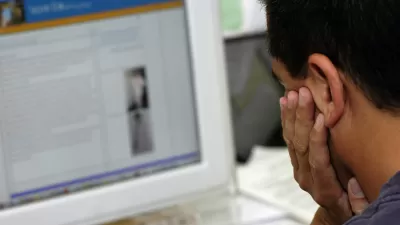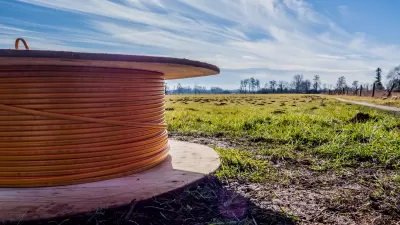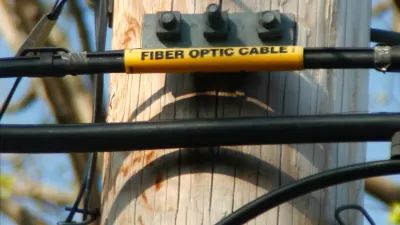Though the Obama administration poured billions of dollars into expanding broadband access across America (98 percent of homes now have access), reducing digital inequality has been a far greater challenge.

"[Elmer Griffin, 70, a retired truck driver from Bessemer, Ala.] is among the roughly 20 percent of American adults who do not use the Internet at home, work and school, or by mobile device, a figure essentially unchanged since Barack Obama took office as president in 2009 and initiated a $7 billion effort to expand access, chiefly through grants to build wired and wireless systems in neglected areas of the country," writes Edward Wyatt.
"Administration officials and policy experts say they are increasingly concerned that a significant portion of the population, around 60 million people, is shut off from jobs, government services, health care and education, and that the social and economic effects of that gap are looming larger. Persistent digital inequality — caused by the inability to afford Internet service, lack of interest or a lack of computer literacy — is also deepening racial and economic disparities in the United States, experts say."
FULL STORY: Most of U.S. Is Wired, but Millions Aren’t Plugged In

Maui's Vacation Rental Debate Turns Ugly
Verbal attacks, misinformation campaigns and fistfights plague a high-stakes debate to convert thousands of vacation rentals into long-term housing.

Planetizen Federal Action Tracker
A weekly monitor of how Trump’s orders and actions are impacting planners and planning in America.

In Urban Planning, AI Prompting Could be the New Design Thinking
Creativity has long been key to great urban design. What if we see AI as our new creative partner?

King County Supportive Housing Program Offers Hope for Unhoused Residents
The county is taking a ‘Housing First’ approach that prioritizes getting people into housing, then offering wraparound supportive services.

Researchers Use AI to Get Clearer Picture of US Housing
Analysts are using artificial intelligence to supercharge their research by allowing them to comb through data faster. Though these AI tools can be error prone, they save time and housing researchers are optimistic about the future.

Making Shared Micromobility More Inclusive
Cities and shared mobility system operators can do more to include people with disabilities in planning and operations, per a new report.
Urban Design for Planners 1: Software Tools
This six-course series explores essential urban design concepts using open source software and equips planners with the tools they need to participate fully in the urban design process.
Planning for Universal Design
Learn the tools for implementing Universal Design in planning regulations.
planning NEXT
Appalachian Highlands Housing Partners
Mpact (founded as Rail~Volution)
City of Camden Redevelopment Agency
City of Astoria
City of Portland
City of Laramie




























